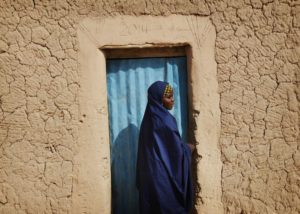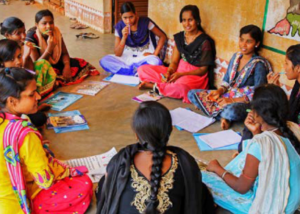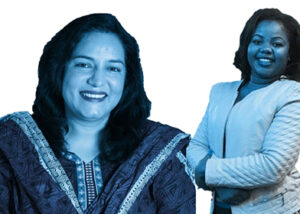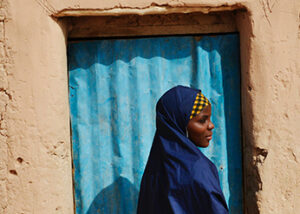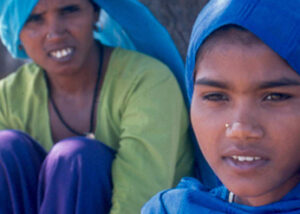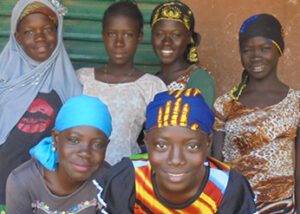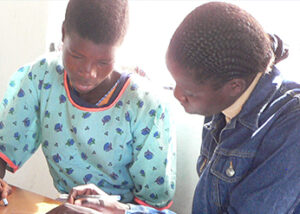Are you listening?
Adolescent girls’ are at the centre of the COVID-19 pandemic response. Girls are facing disproportionate burdens of caring for the sick and completing increased domestic workloads. Their education is also being disrupted and many girls are less likely to return to school after the health crisis. They are also having a more difficult time accessing sexual and reproductive health and gender-based violence is increasing as a result of the pandemic. Even though girls are heavily impacted by the pandemic, their interests are insufficiently addressed by decisionmakers. Therefore, adolescent girls need to be meaningfully engaged by governments and local leaders in developing, adapting, and monitoring policies and programmes that tackle the biggest challenges arising from this pandemic. Girl-led and girl-focused movements need more money and support so that they can work with adolescent girls to ensure they have a seat at the table. Only once girls are included as part of the solution and their rights are upheld will real change be possible.
The problem
Gender-based violence (or GBV) happens every day across the world. GBV is violence directed against a person because of their gender. While this violence can affect all genders, the majority of those that face this violence are women and adolescent girls. In times of conflict and crisis, like the COVID-19 pandemic, GBV has been found to increase because it deepens the gender inequalities that already exist and which adolescent girls face in their day-to-day life.
Read MoreThe problem
HOW TO PARTICIPATE?
Are You Listening? is a campaign carried by key civil society organizations and governments around the globe. The campaign provides information to a broader audience about the impact of COVID-19 on adolescent girls at risk of child marriage and calls on governments to take a leading role in the fight against child marriage.
Read More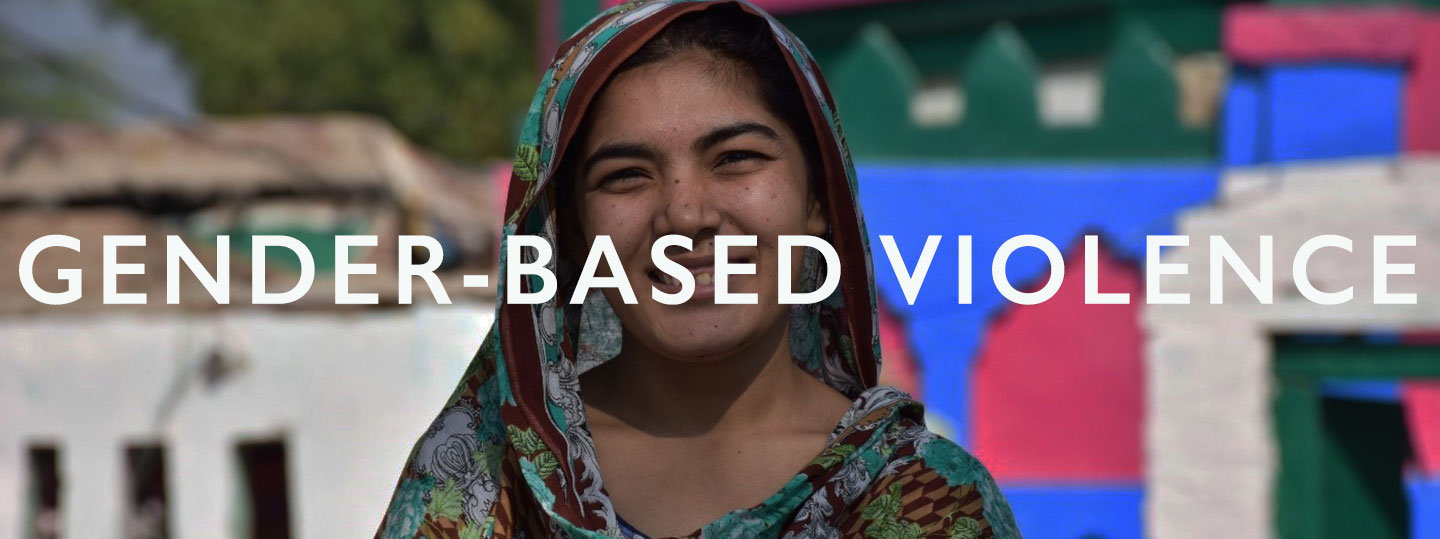
The problem
Gender-based violence (or GBV) happens every day across the world. GBV is violence directed against a person because of their gender. While this violence can affect all genders, the majority of those that face this violence are women and adolescent girls. In times of conflict and crisis, like the COVID-19 pandemic, GBV has been found to increase because it deepens the gender inequalities that already exist and which adolescent girls face in their day-to-day life.
Due to restrictive measures, such as lockdowns and closing public spaces, women and adolescent girls have fewer chances to leave their homes and fewer places they can go to. This puts adolescent girls at a greater risk of GBV while closing them off from their support networks, such as their friends, communities, and professionals. Wassa, a student from Segou, Mali, said that “being deprived of school during this period of coronavirus has exposed me to behaviour related to sexual harassment.” Aminata, a 17-year-old peer educator said, “Like many other girls in the village, I am subject to sexual harassment from boys who are on
endless [school] holidays.”
Unfortunately, it is expected the impact of COVID-19 will stop or slow down the process that has been made to end gender-based violence. As poverty increases, security and stability decrease and initiatives to end GBV are interrupted by the pandemic, it is estimated that for every 3 months of lockdown measures, there will be 15 million more cases of GBV.
The solution
Make GBV services essential and support GBV support systems: It is crucial that GBV services are guaranteed during the pandemic and that adolescent girls have access to them. It is equally important that those helping adolescent girls at risk of GBV have extra support so that they can properly help girls with their health, psychosocial, and legal needs.
Empower community members to speak out against GBV: It is important that governments and local leaders, such as religious leaders, encourage and support community members to speak out against GBV and report suspected cases of GBV.
Find girls at risk of GBV: More efforts need to done to reach adolescent girls, particularly those that are at an increased risk of GBV, such as those living in situations of conflict, displacement, and migration. Here, it is key that the technologies and outreach efforts are adapted and used creatively to make the most of in-person and other communication channels like social media.
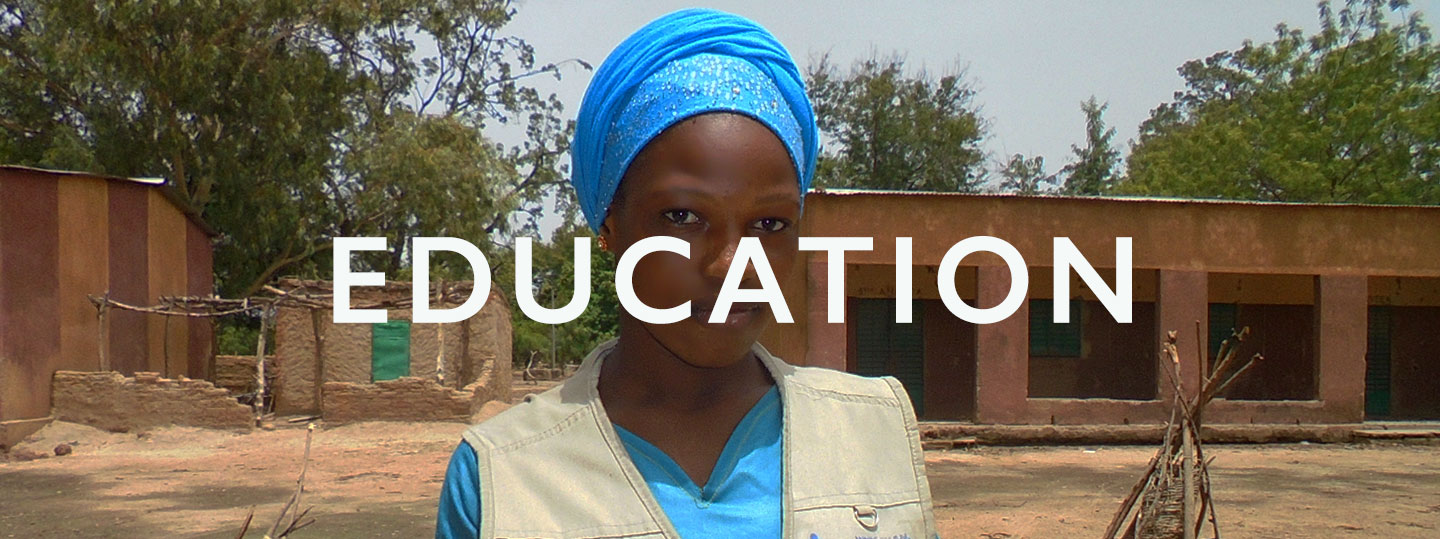
The problem
We have learned from past health crises that adolescent girls often do not return to school afterward. These disruptions of girls’ education will likely have a long-term impact on their future, and their chances to make enough money to make their own decisions in life. Amisha, 16 years old from India, said that her father lost his job due to the lockdown and her family’s financial conditions have worsened. This year she passed her 10th-year board exam with first division, but she fears that their current financial situation will directly affect her studies.
Schools provide more than education for adolescent girls; they also provide them with a safe environment. When girls are at home instead of school, they face greater risks of early pregnancy and gender-based violence, including female genital mutilation and child marriage. These experiences will make girls less likely to return to school after the crisis.
The solution
Spread awareness that adolescent girl’s education is key: What causes girls to drop out of school needs to be acknowledged and improved upon. Communities and adolescent girls must be included in highlighting the importance of girl’s education.
Batoma, a 17-year old from Mali, is eager for schools to reopen. She said, “I ask the authorities to do everything they can to open schools… because some girls are discouraged, others are left to fend for themselves, and others risk being forcibly married.”
Distance learning needs to be gender-responsive: This means that education needs to be provided in an equitable way, one that recognizes gender differences, biases, and issues that adolescent girls face and finds approaches to overcome these obstacles. This can be done through radio outreach, sending school materials to homes, and creating flexible schedules for girls – especially given their extra caregiving activities at home.
Make schools safe spaces: Batoma says “the school protects all children and especially us girls.”
When girls return to school, schools must be safe and accessible spaces for them. For example, this can be done by providing free or affordable education, free meals, and ensuring access to water, hygiene, and sanitation (WASH) facilities and products.
Support girls that have undergone child marriage: Given the expected increase in child marriages, married adolescent girls must be supported in their journey back to school. This can be done by providing married girls with catch-up courses. Adolescent girls must not face stigma and discrimination once they go back to school.
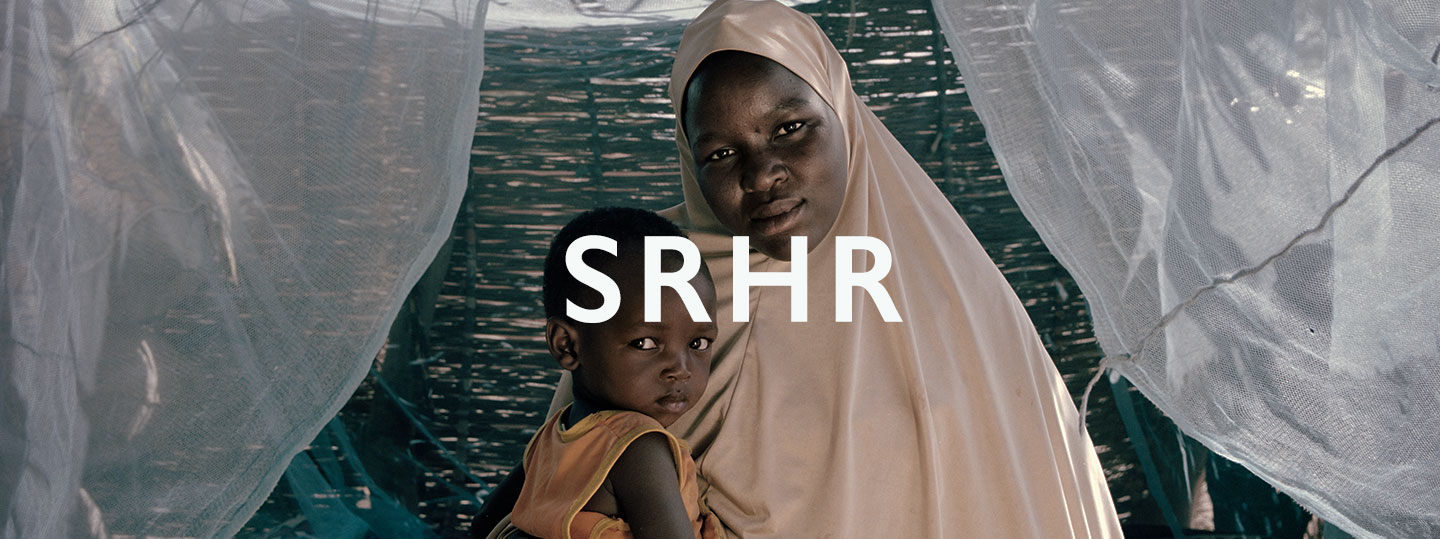
The problem
COVID-19 impacts all aspects of adolescent girl’s lives, including their sexual and reproductive health and rights (or SRHR). SRHR is an umbrella term that underlines the basic need for everyone to be able to access sexual and reproductive healthcare, information, products, and resources, along with the human rights that everyone has to be able to make decisions about their bodies, sexual health and relationships, sexuality, and gender identity. For example, this includes adolescent girls’ rights to access menstrual health products and their right to decide if they want to get married or have children.
Although women and adolescent girls already face challenges in exercising their SRHR, during the pandemic, these have barriers increased. Due to the shift of sexual and reproductive health (SRH) services and healthcare workers towards the outbreak, women and adolescent girls may not be able to access SRH services, products, and information. Additionally, restrictive measures, such as lockdowns, can make it harder for girls to access these services. For example, in India, the distribution of government-provided menstrual health products has stopped, leaving many girls without any products. These measures have also disrupted the supply and production of SRH products, such as contraception, leading to stockouts. These different challenges are expected to have a long-term impact, including an increase in the number of early pregnancies, cases of sexually transmitted infections (STIs), and unsafe abortions.
Sindhu from Jharkhand, India said, “We don’t have enough money for food. How can I ask [my family] to buy me sanitary napkins? So, I started using old cloth again because of the lack of availability, even though the sanitary napkins are available in the market, the price is high. I am worried about my health but what can I do?” Sindhu isn’t alone. Thousands of women and young girls in the rural areas of Jharkhand are in a similar situation and things may be worse than what they appear as these issues are not discussed openly.
In Mali, girls are also having a hard time accessing menstrual health products, in part due to the rise in prices of sanitary cotton. Aminata from Segou said, “I and several other girls are often forced to resort to the traditional method which is a source of infection.”
MTBA partner, NEEDS, surveyed 419 adolescent girls from 15 to 19 in the Deoghar district in Jharkhand. Before the lockdown, 65% of these girls had access to sanitary pads. Due to the lockdown, this number has reduced to 33%. MTBA partners, like NEEDS, have been trying to meet these gaps by distributing reusable sanitary pads to 560 girls who had no access to menstrual health products.
Girls themselves are also taking action and raising their voices to demand their sexual and reproductive health rights. For example, Neelam, wrote a joint letter with a group of girls to the Honourable Chief Minister of Jharkhand regarding the lack of menstrual health products available and the barriers girls were facing to access them. Girls are also making their own menstrual health products, and even making them for others. Sarmistha from Odisha, India, and her girl’s group are making pads for themselves and are even planning to scale up their work on a commercial basis.
The solution
Continue comprehensive sexuality education (CSE): It is important that CSE remains part of gender-responsive distance learning and that it is resumed when school reopens.
Ensure that sexual and reproductive health and rights information, services, and products remain essential and accessible: Ensuring adolescent’ girls’ access to SRHR is vital. Especially for adolescent girls most at risk, such as those that are out-of-school or married. They must be able to voice and safeguard their SRHR needs.
Sumitra from Odisha, India said: “I sincerely request the concerned Government Department and authorities on behalf of our girl group members to resume the supply of sanitary napkins for girls through ASHA and IFA tablets through AWW.”
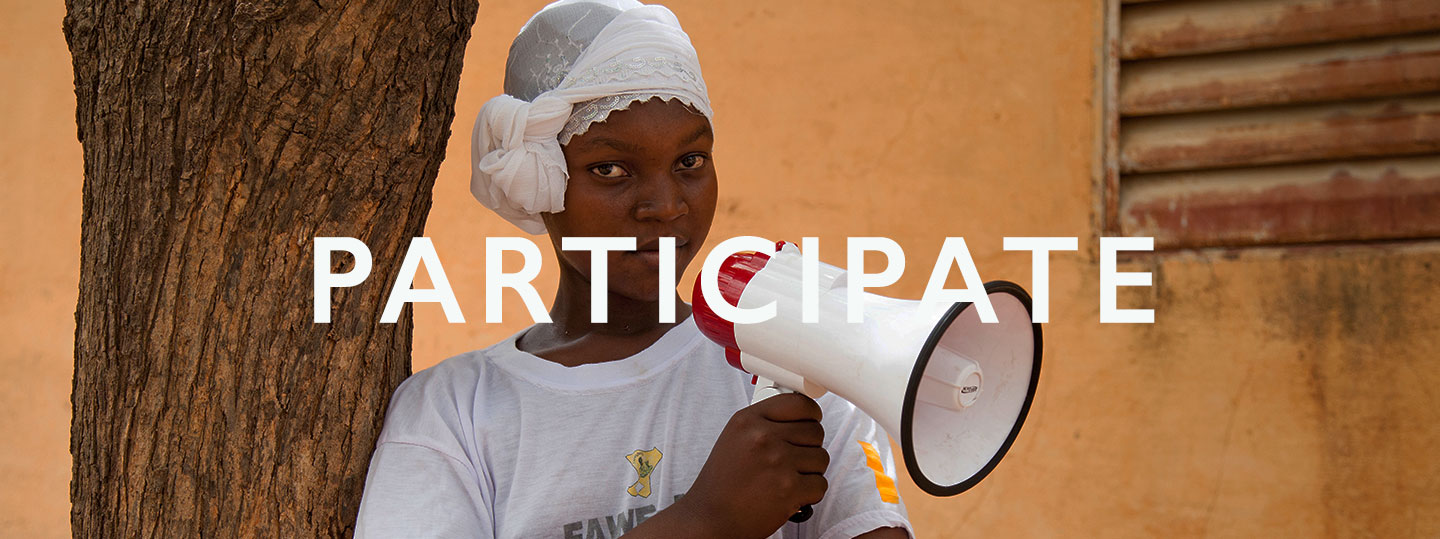
HOW TO PARTICIPATE?
Are You Listening? is a campaign carried by key civil society organizations and governments around the globe. The campaign provides information to a broader audience about the impact of COVID-19 on adolescent girls at risk of child marriage and calls on governments to take a leading role in the fight against child marriage.
The campaign also urges policymakers to put girls at the centre of responses to COVID-19. You can sign your name or that of your organization to our Call to Action. This document underlines specific steps that need to be taken in the fields of education, gender-based violence (GBV) and sexual and reproductive health and rights (SRHR) to prevent progress from stagnating or diminishing during the COVID-19 pandemic.
Read the Call to Action in English, French and Spanish. Sign your name or the name of your organization by clicking here.
The easiest and most important way you can participate in the campaign is to like, reshare, and repost it on social media. You can follow along with the campaign through our Instagram, Twitter, and LinkedIn.
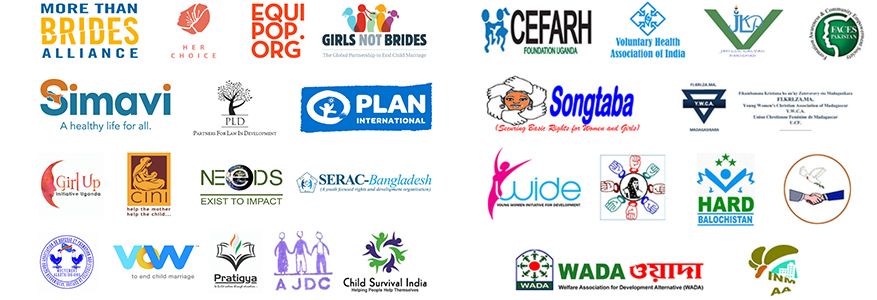
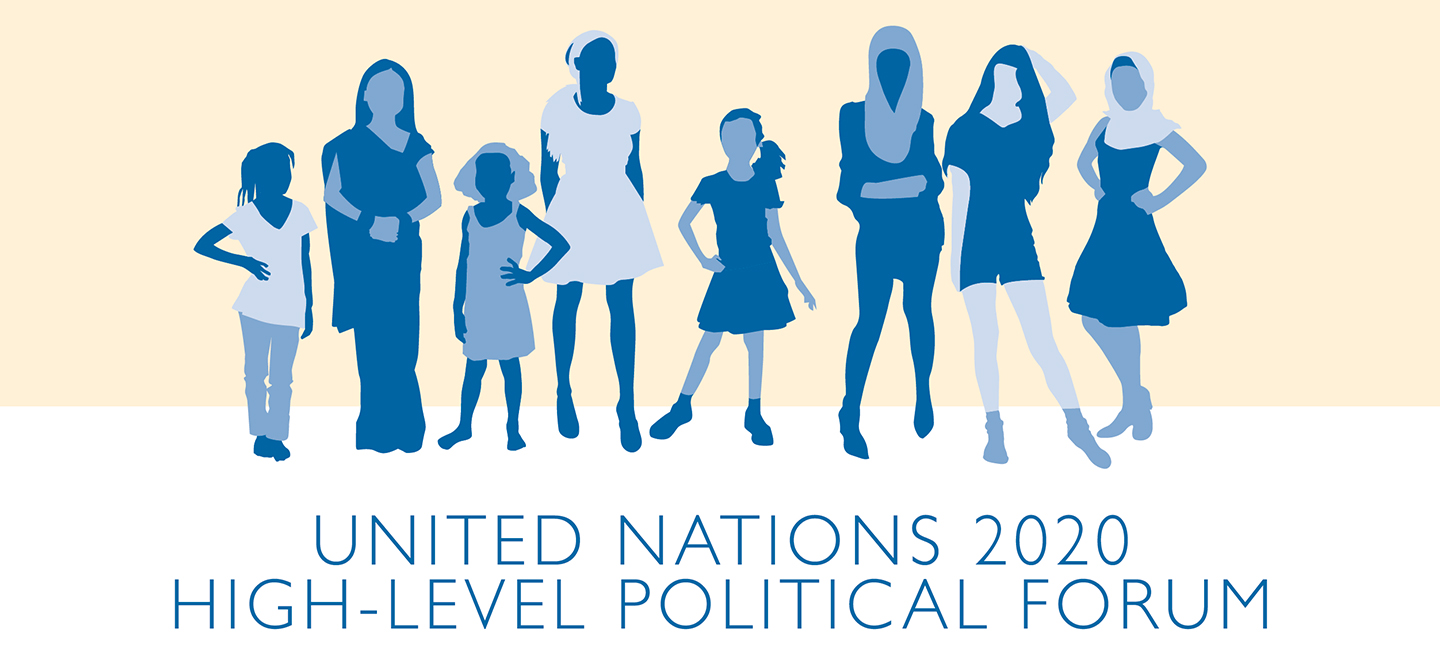
Unintended consequences of enforcement of Child Marriage Laws a virtual side event during the United Nations 2020 High-Level Political Forum on Sustainable Development (HLPF). On 9 July the More Than Brides Alliance, in collaboration with Girls Not Brides, the Global partnership to End Child Marriage, Her Choice Alliance, and Partners for Law in Development hosted a virtual side-event during the 2020 HLPF.
Insecurity increases child marriage, and we expect that the COVID-19 pandemic will be no different: the United Nations Population Fund (UNFPA) estimates an additional 13 million child marriages will occur between 2020-2030 because of COVID-19.
Now more than ever, ending child marriage needs to be on the global agenda. As COVID-19 limits on-the-ground programmatic activities, changing and enforcing minimum age at marriage laws may become a more feasible child marriage prevention approach. Bringing together a global panel of program and research experts, our overall objective for this event is to raise the issue of unintended consequences of the enforcement of child marriage laws in the context of COVID-19.
Virtual Panel:
- Moderation: Esther de Vreede, Director Programme Implementation, Simavi
- Presentation by Dr Faith Mwangi-Powell, CEO Girls Not Brides – ENDING CHILD MARRIAGE IN A COVID-WORLD
- Lucía Berro Pizzarossa, Girls Not Brides – UNINTENDED STIGMATISATION OF ADOLESCENT´S SEXUAL RIGHTS AS A RESULT OF CHILD MARRIAGE LAWS
- Madhu Mehra, Partners for Law in Development India – DO PUNITIVE LAWS HELP ELIMINATE CHILD MARRIAGE – THE INDIAN EXPERIENCE
- Gerald Kato, Her Choice – A PROGRAMMATIC VIEW ON ENDING CHILD MARRIAGES IN TIMES OF COVID-19 IN UGANDA
- AJ Melnikas, Population Council / MTBA – PERCEPTIONS OF CHILD MARRIAGE LAWS IN A CHANGING LEGAL CONTEXT: QUALITATIVE EVIDENCE FROM MALAWI.
Download the presentations in English, Spanish and French.
